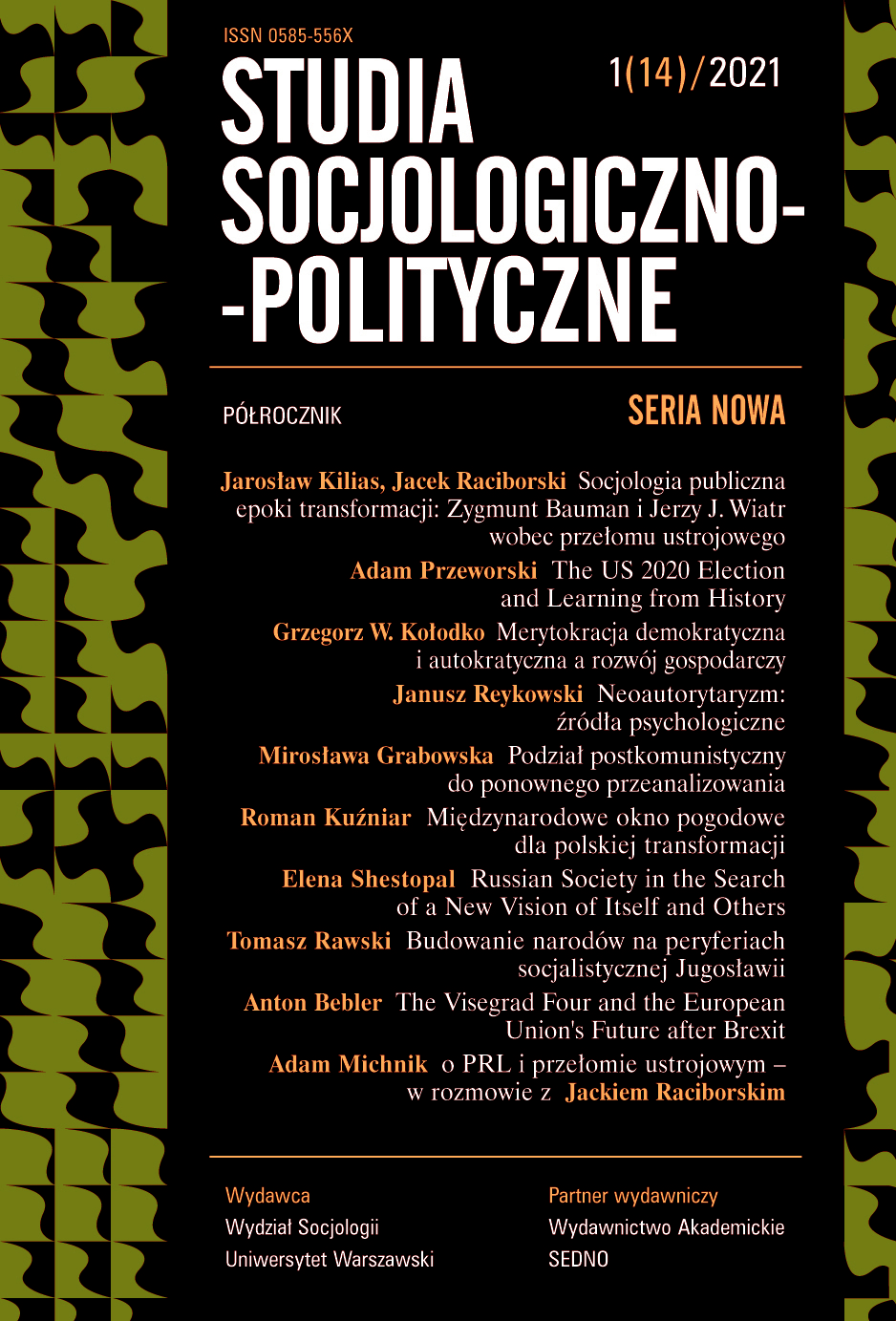Budowanie narodów na peryferiach socjalistycznej Jugosławii (1945–1974): Macedonia, Czarnogóra, Bośnia i Hercegowina
Peripheral Nation-Building in the Socialist Yugoslavia (1945–1974): Macedonia, Montenegro, Bosnia and Herzegovina
Author(s): Tomasz RawskiSubject(s): Politics / Political Sciences, Politics, History, Social Sciences, Political Theory, Sociology, Ethnohistory, Special Historiographies:, Government/Political systems, Politics and society, Nationalism Studies, Post-War period (1950 - 1989), Period(s) of Nation Building, History of Communism, Inter-Ethnic Relations, Politics of History/Memory, Politics and Identity, Identity of Collectives
Published by: Wydział Socjologii Uniwersytetu Warszawskiego
Keywords: Jugosławia; nacjonalizm; budowanie narodów; Macedonia; Czarnogóra; Bośnia i Hercegowina
Summary/Abstract: The article discusses the emergence and early development of three South-East European nationalisms: Macedonian, Montenegrin and Muslim/Bosniak, all of which were born as mass phenomena only in the second half of the 20th century. The author argues that the first three decades of the socialist Yugoslavia (1945–1974) should be considered crucial to these three nation-building processes because in this period not only the social conditions necessary for the mass production and reception of the modern national ideas were created, but also the respective national cultures were institutionalized, either fully (Macedonian) or partially (Montenegrin, Muslim/Bosniak).
Journal: Studia Socjologiczno-Polityczne. Seria Nowa
- Issue Year: 14/2021
- Issue No: 1
- Page Range: 143-160
- Page Count: 18
- Language: Polish

